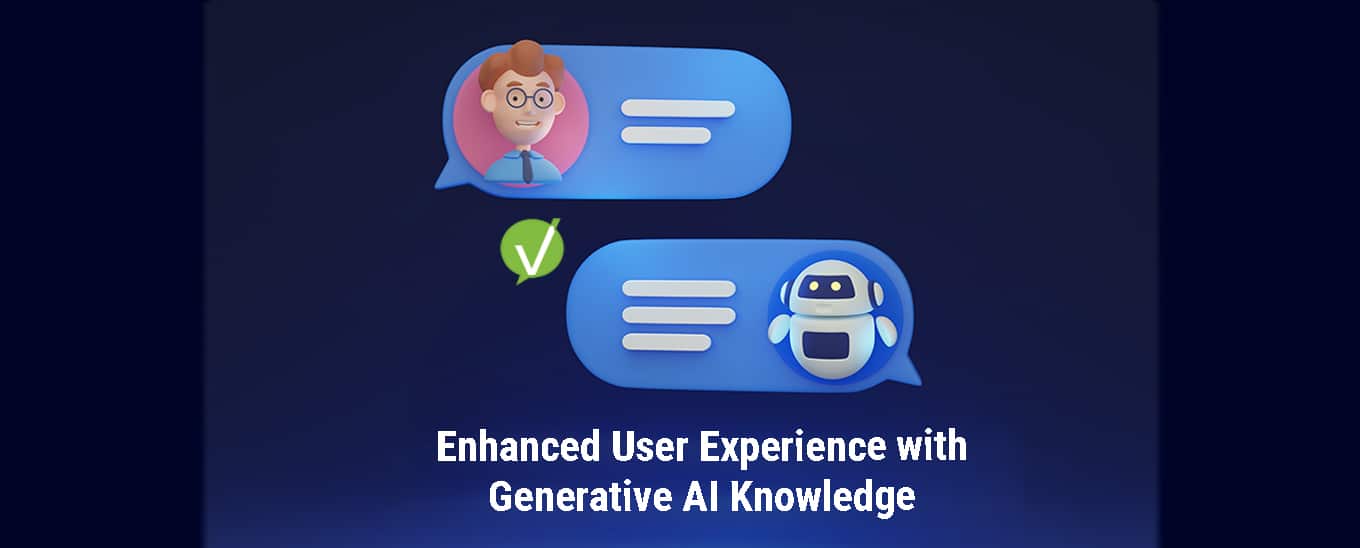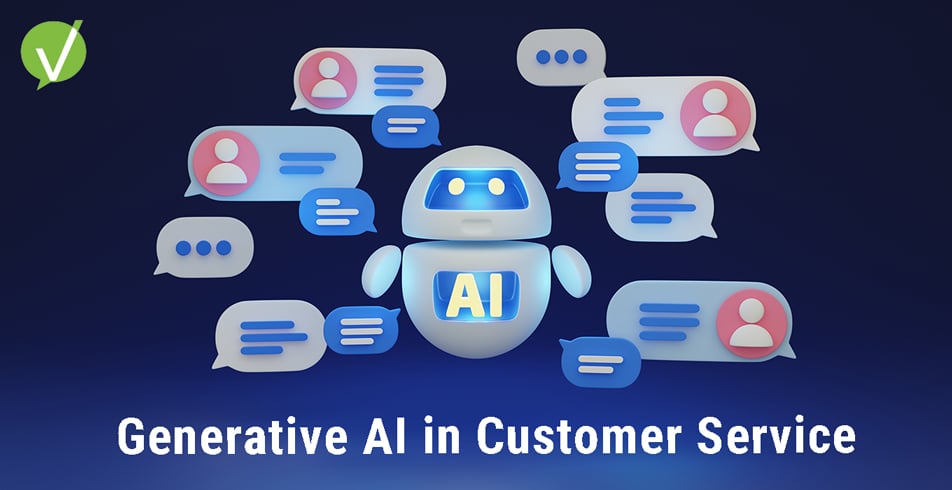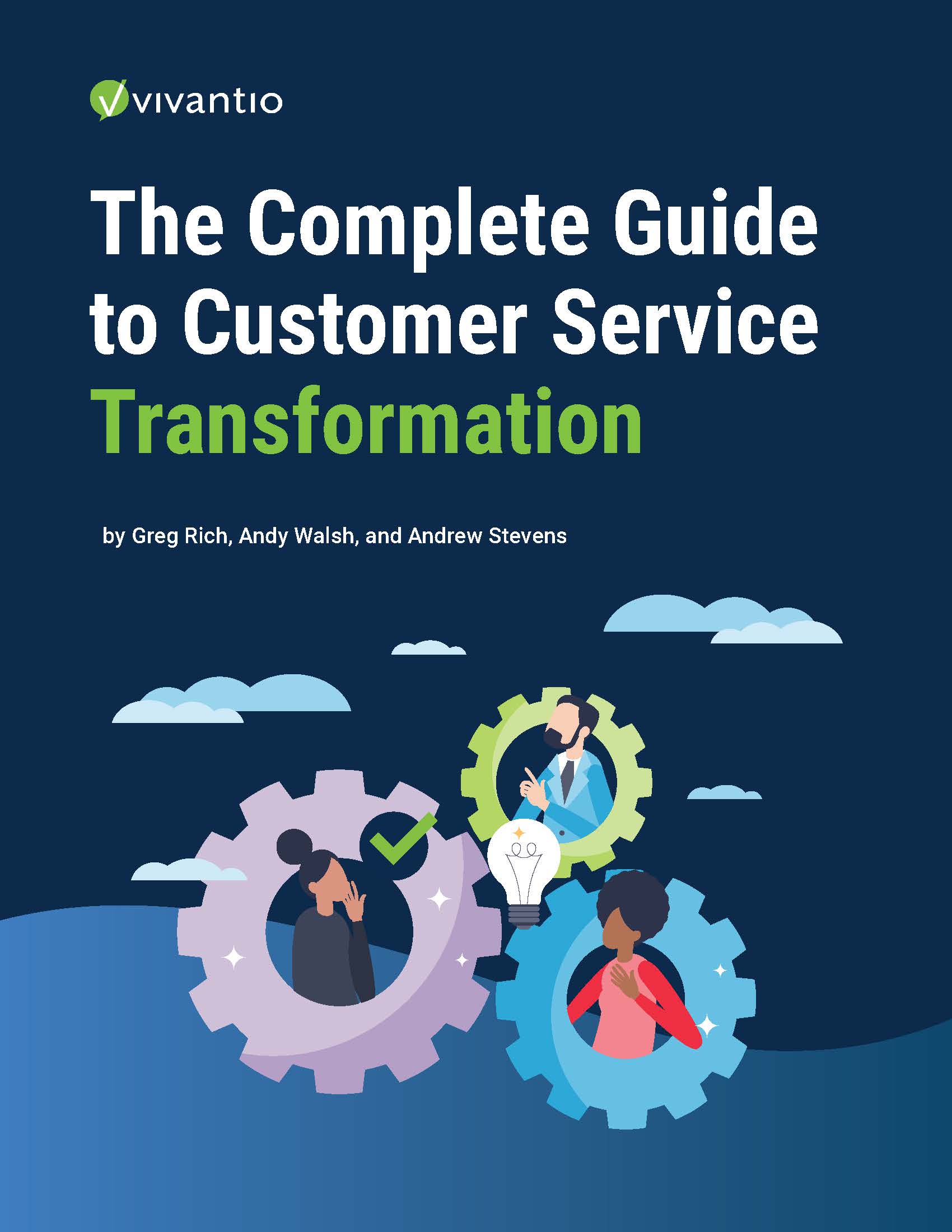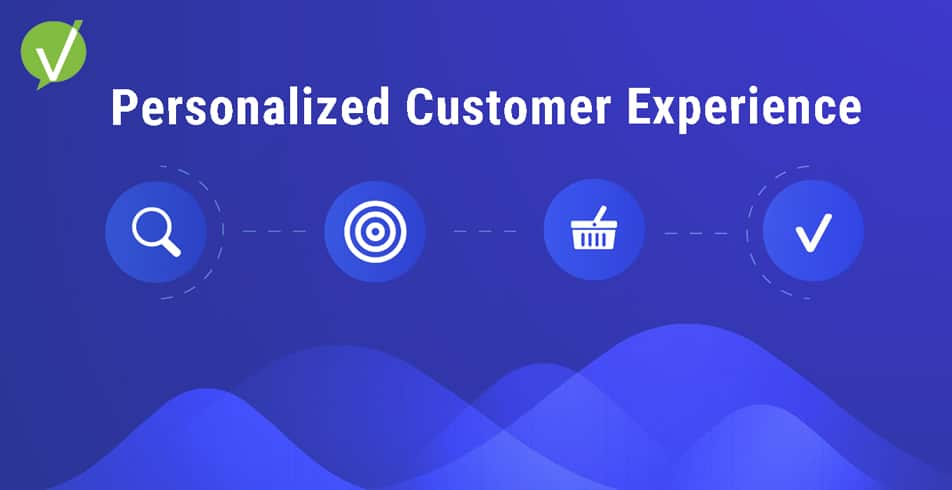Generative AI in Customer Service
Introduction
Customer service optimization and satisfaction are paramount as businesses of all sizes are turning to generative AI to enhance the customer experience through streamlined support processes. Through the power of generative AI in customer service, you can redefine the way you interact with your customers, ensuring their needs are met more efficiently and effectively.
What is Generative AI in Customer Service?
Generative AI refers to the use of artificial intelligence systems, such as chatbots and conversational AI, to mimic human-like interactions and deliver personalized customer service. By leveraging this technology, you can engage with your customers in real time, providing them with relevant and tailored support. This not only boosts customer satisfaction but also increases their trust and loyalty towards your brand.
Productivity and Efficiency: The implementation of generative AI in customer service can increase productivity by 30% to 50%, which significantly enhances the efficiency of customer interactions and the overall customer care function (BCG Global).
Advantages of Generative AI in Customer Service
The integration of generative AI in customer service offers a multitude of benefits that significantly enhance support operations and elevate the overall customer experience. From optimizing support processes to delivering personalized service round the clock, generative AI empowers businesses to anticipate customer needs, streamline operations, and foster stronger customer engagement. Let’s explore the advantages in detail:
- Optimizes support operations: Generative AI technology enables the handling of a significant volume of customer inquiries simultaneously, reducing response times and minimizing the need for manual intervention.
- Enables 24/7 personalized service: Generative AI facilitates customer self-service options, allowing customers to access information, troubleshoot issues, and perform transactions seamlessly without waiting on hold or navigating complex menus.
- Anticipates customer needs: With advancements in machine learning and predictive AI, generative AI systems can anticipate customer needs and provide proactive solutions, enhancing customer satisfaction and engagement.
- Delivers personalized offers and recommendations: By understanding customer behavior and preferences, businesses can leverage generative AI to deliver personalized offers and recommendations, creating dynamic and engaging interactions.
- Positions organizations at the forefront of customer service: Adopting generative AI as part of an AI strategy enhances customer engagement, satisfaction, and support operations, positioning organizations as leaders in exceptional customer service in the digital age.
Understanding Generative AI in Customer Service
Generative AI is enhancing customer service by introducing advanced systems that can intelligently interact with customers. These AI-powered customer service agents, such as chatbots and conversational AI, are designed to provide personalized assistance and enhance the overall customer experience.
Generative AI refers to AI systems that have the ability to generate new content, such as responses, based on their understanding of human language and context. These systems utilize deep learning algorithms to analyze customer queries and deliver accurate and relevant responses.
- Chatbots, which went mainstream in the mid to late 2010s, are one of the most popular applications of generative AI in customer service and can handle a wide range of customer inquiries, from product information to troubleshooting. With their ability to understand natural language and context, chatbots engage customers in meaningful conversations and provide prompt and accurate assistance.
- Conversational AI takes generative AI a step further by enabling more natural and human-like interactions between customers and AI systems. These AI-powered agents can engage in dynamic conversations, understand customer sentiment, and adapt their responses accordingly, creating a more personalized and engaging customer service experience.
By leveraging generative AI in customer service, companies can streamline their support processes, handle a large volume of inquiries simultaneously, and ensure prompt responses, ultimately improving customer satisfaction.
Enhancing Customer Service with Generative AI:
- Personalized assistance through AI-powered chatbots and conversational AI
- Improved customer engagement through natural language and context understanding
- Streamlined customer support processes and reduced wait times
- Consistent and accurate information delivery
- Data-driven insights for optimizing customer service operations
Generative AI in Customer Service |
Benefits |
|---|---|
| Enhanced customer experience | – Personalized assistance
– Improved engagement |
| Streamlined support processes | – Reduced wait times
– Consistent information delivery |
| Data-driven insights | – Optimize customer service operations |
Leveraging Predictive AI
Generative AI utilizes predictive algorithms to anticipate customer needs and provide proactive assistance. By analyzing historical data and real-time customer interactions, AI systems can predict potential issues or recommend relevant products or services to customers. This proactive approach demonstrates a deep understanding of customer preferences, enhancing the overall customer service experience.
In conclusion, generative AI offers significant benefits for customer service operations. By utilizing AI-driven technologies, businesses can improve the customer experience, boost customer engagement, optimize operations, and leverage predictive AI to create more personalized interactions. With the increasing importance of customer service in building brand loyalty, it is crucial for businesses to embrace generative AI and unlock its transformative potential.
Advancing Customer Service with Generative AI
Providing exceptional customer service is essential for maintaining a competitive edge. With the advent of generative AI, businesses have a powerful tool at their disposal to advance customer support operations and elevate the overall customer experience. Following we’ll explore how generative AI is transforming customer service and offer future insights into its practical applications.
1. Ticket Routing and Resolution Optimization
Generative AI enables businesses to route high-risk churn customers to agents with the capacity and expertise to address their specific needs quickly and effectively. By analyzing previous interactions and agent profiles, AI systems can match customers with the most suitable agents, reducing call times and increasing customer satisfaction. Additionally, AI-driven resolution optimization streamlines ticket handling by analyzing ticket details and past solutions to provide agents with summarized solutions, improving efficiency and accuracy.
2. Ticket Summarization and Knowledge Creation
During the lifecycle of a ticket management, generative AI can automatically summarize key points and provide actionable task lists for agents, facilitating better communication and collaboration. Moreover, AI-powered systems can create knowledge articles automatically by combining outcomes from similar tickets, enabling self-service portal options for customers and providing agents with actionable insights during interactions.
3. Enhanced User Experience with Generative AI Knowledge
By capturing extended information during digital self-service interactions, businesses can leverage generative AI to provide customers with concise solutions based on a comprehensive analysis of internal and external knowledge systems. Through digital self-service channels, generative AI offers insights into products, services, and features that align with customer preferences and past experiences, enhancing the overall user experience.
4. Personalization and Virtual Assistants
Generative AI enables personalized customer service by leveraging factors such as customer behavior, history, and stage of the customer journey to present customized offers. Through virtual assistants powered by AI, businesses can engage customers in dynamic conversations, understand their needs, and provide tailored support, ultimately improving conversion rates and order value.
5. Predictive Analysis and Journey Analytics
AI-driven predictive analysis allows businesses to anticipate customer needs and behaviors based on historical data and real-time interactions, enabling proactive support and personalized recommendations. Journey analytics powered by generative AI track and analyze customer interactions across channels, identifying potential bottlenecks and suggesting the best course of action to enhance the customer journey.
6. Future Trends and Integration
As generative AI continues to evolve, businesses can expect further advancements in customer service automation and personalization. Integrating generative AI with existing platforms and technologies will become increasingly important, enabling seamless interactions and data-driven insights.
Generative AI is revolutionizing customer service by optimizing support operations, enhancing the user experience, and enabling personalized interactions. By embracing this transformative technology, businesses can stay ahead of the curve and deliver exceptional customer experience.
The Future of Generative AI in Customer Service
Generative AI is reshaping customer service, offering organizations the means to enhance experiences and streamline operations. To harness its potential fully, a robust AI strategy aligned with organizational goals and customer-centricity is imperative.
Understanding evolving customer behavior is pivotal, enabling anticipation of needs, personalized interactions, and timely assistance, fostering satisfaction and loyalty. Embracing generative AI equips organizations with tools to drive growth, efficiency, and satisfaction.
By leveraging ticket routing for high-risk churn customers, companies can address concerns promptly, boosting retention. Resolution optimization and ticket summarization streamline support processes, enhancing satisfaction. Knowledge creation and enhanced user experience empower both customers and agents, elevating support quality. Personalization and predictive analysis anticipate issues, delivering tailored solutions efficiently. Journey analytics and future trends analysis enable adaptation to evolving expectations, ensuring long-term success.
Maximize the potential of generative AI in customer service with Vivantio’s personalized solutions. Schedule a demo today to discover how our tailored strategies and data-driven insights, leveraging generative AI, can optimize your support operations and create exceptional experiences for your customers. Connect with our expert team to explore how personalized support strategies, powered by generative AI, can be customized to align with your unique business objectives and drive your organization towards greater success.












